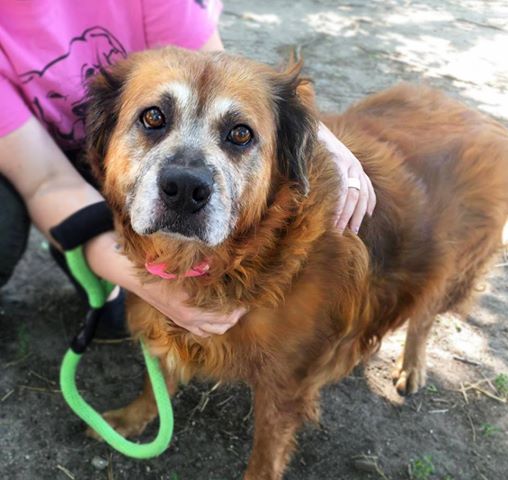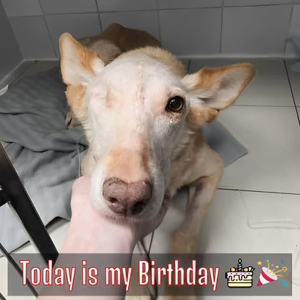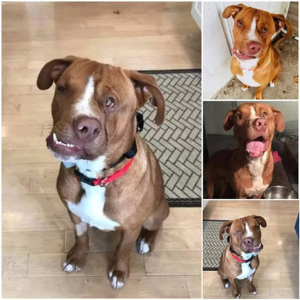After the death of his owner, Bear the dog still quietly lay by the grave of his deceased owner, silently crying for many days without eating or drinking. Up to now, touching stories about loyal dogs , sadly waiting for their deceased owner in vain still happen frequently, making many people emotional.
The story of Hachiko’s loyalty from the 1920s to the present day still makes many people sad every time they tell it. According to Japanese people, Hachiko saw his owner off to the train station every morning and waited for him there until the evening. And when his owner passed away, this loyal dog still went to the train station every day to wait for him to return for more than a decade later.
This dog named Leao sits next to the grave of his owner who died in a landslide in Brazil in January 2011. Photo: YouTube
Last year, a dog in Russia also deeply touched readers with its loyalty. After its owner passed away in a hospital, the dog continued to visit the hospital every day for the next two years in the hope of seeing its owner again. Or more recently, there was a touching story about a dog waiting for a year at the place where its owner died in an accident. An Ecuadorian dog also reminded many people of the image of Hachiko when it lay still in the ruined house where its owner died in an earthquake in April.
The story of dogs showing loyalty when their owners passed away will certainly interest many people. However, there is a fact that not many people know that up to now, scientists still cannot have a satisfactory answer to the question: Do dogs really grieve when their owners pass away?
Anthropologist Barbara J. King says the subject of animal grief is a new area of research, and scientists are finding increasing evidence that elephants, primates, and marine mammals, such as dolphins, grieve. However, they have not yet been able to find similar evidence in dogs.
Meanwhile, Alexandra Horowitz, an expert on canine cognition, insists that she does not dismiss the idea that dogs can grieve. But she argues that touching stories about dogs like Hachiko are not conclusive evidence of this. Instead, they are evidence of our desire to see animals through a human lens.
“We think about the death of others, of ourselves, and know that when someone dies, we will never see them again. I’m not sure dogs understand this concept,” said Alexandra Horowitz.
According to Horowitz, when their owner suddenly dies, dogs will continue to act in familiar ways. “Dogs don’t have many options. They don’t have an independent life, they don’t get to explore different ways of living. They get used to that kind of life,” she explained.
Meanwhile, Clive Wynne, a psychology professor at Arizona State University who specializes in animal behavior, asserts that dogs have a deep bond with humans and that they also “suffer emotional pain.” However, what has puzzled him for many years is how long this pain in dogs lasts.
Mr. Wayne believes that dogs easily form close relationships with their new owners because otherwise, animal rescue organizations will not be successful when dogs are always sad and remember their old owners. He also affirmed that if he were to die, his beloved dog would soon get used to the new owner while his son would carry the emotional trauma for the rest of his life.
“That’s the relationship between humans, and it’s different from the relationship between humans and dogs. There’s no better relationship between the two, they’re just different,” Wynne said.
He also mentioned the case of Greyfriars Bobby, a dog whose statue was erected to honor his loyalty after he stayed by his owner’s grave for 14 years. However, the authenticity of this touching story has since become the subject of many books. Many authors believe that the reason this dog did not leave the cemetery was because it was fed by visitors and caretakers.
BL








